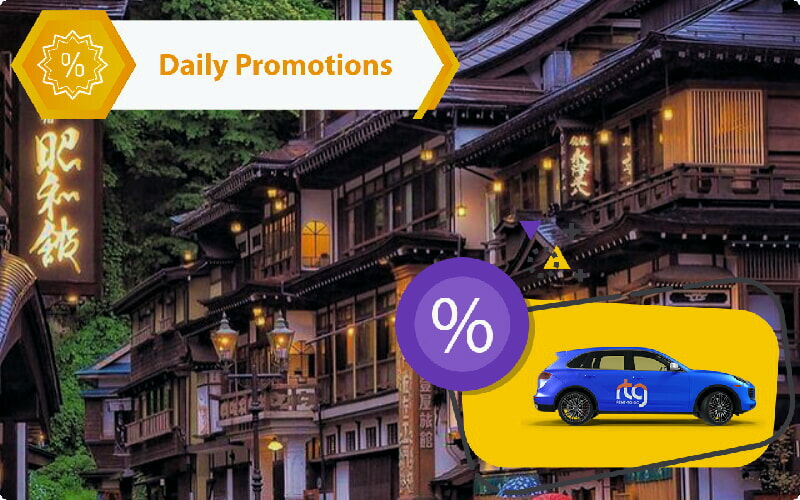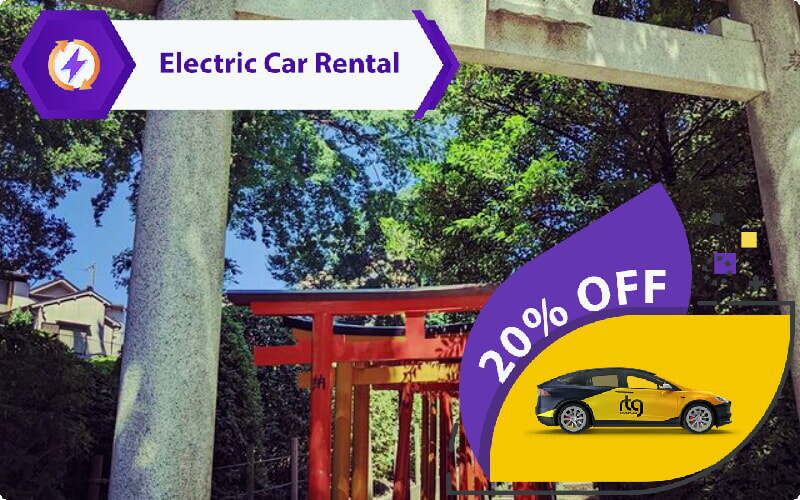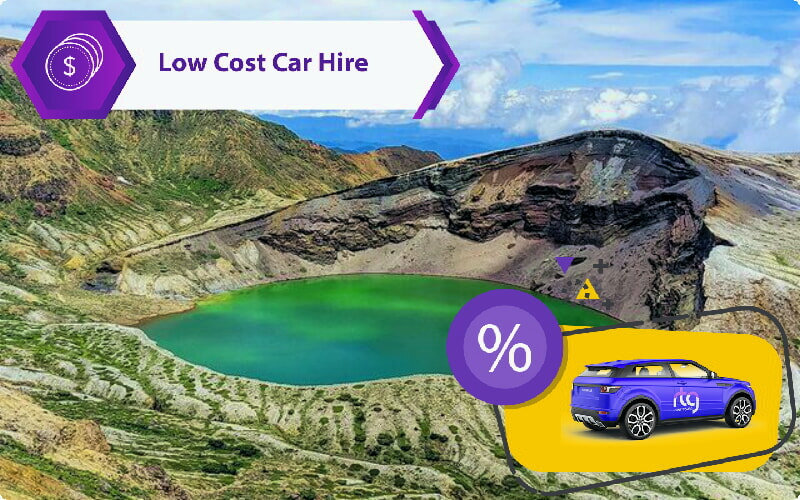 Up to
-35%
Up to
-35%
Renting a car in Japan can be a convenient and enjoyable way to explore the country's diverse landscapes and attractions. Here’s a comprehensive guide to help you navigate the process:
It’s advisable to book your rental car in advance, especially during peak travel seasons. You can book online through international rental agencies or local Japanese companies. Popular rental companies include Toyota Rent a Car, Nippon Rent-A-Car, and Times Car Rental.
When picking up your rental car, you will need to present your IDP, home country driver’s license, passport, and credit card. The rental staff will provide you with the necessary documents and explain the car’s features. Many rental cars in Japan come equipped with GPS systems, often available in English.
When returning your rental car, ensure it is refueled to the level specified in your rental agreement. Inspect the car for any damage and report it to the rental company. Be mindful of the return time to avoid additional charges.
By following these guidelines, renting a car in Japan can be a smooth and rewarding experience, allowing you the freedom to explore the country at your own pace.

Japan offers a variety of electric cars for rental, catering to both locals and tourists who are keen on eco-friendly travel. Some popular electric car models available for rent include the Nissan Leaf, Tesla Model 3, and BMW i3. These models are known for their efficiency, advanced technology, and comfortable driving experience.
Here are the average daily rental rates for these electric cars in Japan:
These rates can vary depending on the rental company, location, and duration of the rental. It's advisable to book in advance and check for any special offers or discounts that might be available. Renting an electric car in Japan not only provides a smooth and quiet ride but also contributes to reducing carbon emissions, making it a responsible choice for environmentally conscious travelers.




Exploring Japan by a rented car offers the freedom to discover its diverse landscapes and vibrant cities at your own pace. Here are some top destinations to consider:
The bustling capital city is a must-visit, offering a mix of modern attractions and traditional sites. Drive to the iconic Tokyo Tower, explore the historic Asakusa district, and enjoy the vibrant nightlife in Shibuya and Shinjuku.
Known for its well-preserved temples and gardens, Kyoto is a cultural treasure. Visit the stunning Fushimi Inari Shrine, the serene Arashiyama Bamboo Grove, and the historic Kinkaku-ji (Golden Pavilion).
For nature lovers, Hokkaido is a paradise. Drive through the scenic landscapes of Furano and Biei, relax in the hot springs of Noboribetsu, and enjoy winter sports in Niseko.
Okinawa offers beautiful beaches and a unique cultural experience. Visit the Churaumi Aquarium, explore the historic Shuri Castle, and relax on the pristine beaches of Miyako Island.

One way car rentals in Japan offer flexibility for travelers who wish to explore the country without the need to return the vehicle to the original rental location. This option is particularly convenient for those planning to travel long distances or follow a non-circular route. Many car rental companies in Japan provide this service, allowing you to pick up a car in one city and drop it off in another.
For example, renting a car in Tokyo and returning it in Kyoto might incur an additional fee ranging from ¥10,000 to ¥20,000 (approximately €70 to €140). Similarly, a one-way rental from Osaka to Hiroshima could cost an extra ¥8,000 to ¥15,000 (around €55 to €105). These fees are in addition to the standard rental rates, which vary depending on the type of vehicle and rental duration.
It is advisable to check with individual rental companies for specific rates and terms, as prices and policies can vary. Booking in advance can also help secure better deals and ensure availability.

To rent a car in Japan, you will need a valid driver's license from your home country, an International Driving Permit (IDP) based on the 1949 Geneva Convention, and your passport. Some rental companies may also require a credit card for the security deposit.
No, you cannot use your foreign driver's license alone in Japan. You must have an International Driving Permit (IDP) along with your foreign driver's license. The IDP must be based on the 1949 Geneva Convention.
Yes, most car rental companies in Japan require drivers to be at least 18 years old. However, some companies may have a higher minimum age requirement, such as 21 or 25 years old. Additionally, young driver fees may apply for drivers under a certain age.
While it is not strictly necessary to book a rental car in advance, it is highly recommended, especially during peak travel seasons or if you have specific vehicle preferences. Booking in advance ensures availability and often provides better rates.
In Japan, people drive on the left side of the road. It is important to follow traffic rules, such as wearing seat belts, not using mobile phones while driving, and adhering to speed limits. Be mindful of pedestrians and cyclists, and always yield to emergency vehicles.
Yes, Japan has many toll roads, especially on expressways. Toll fees can be paid using cash, credit cards, or an electronic toll collection (ETC) card. If you plan to use expressways frequently, renting an ETC card with your vehicle can be convenient and may offer discounted rates.
In case of an accident, first ensure everyone's safety and call the police (dial 110) to report the incident. Contact your rental company immediately for further instructions. For breakdowns, most rental companies provide roadside assistance; check your rental agreement for the contact number and details.
